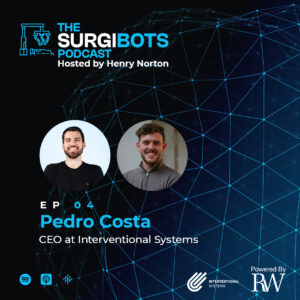Surgibots Podcast
S02 E06
Developing a Career in Surgical Robotics
The surgical robotics space is a richly varied industry that’s full of opportunities. Whether you’re an engineer, leader or marketer, there’s plenty of potential.
Listen/watch now

Listen/watch now



